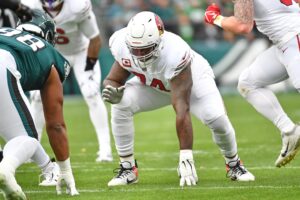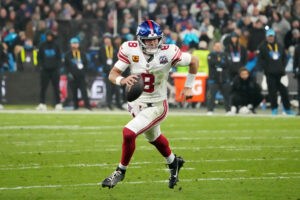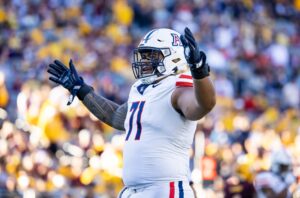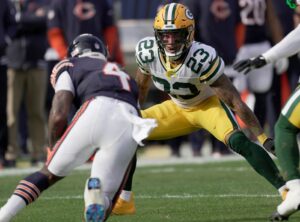Quarterback Tom Brady and the New England Patriots were unable to win their third Super Bowl in four years, but don’t blame that on the quarterback. Legendary head coach Bill Belichick rolled out perhaps the worst game plan of his storied career. There were several questionable choices made throughout the game that ultimately led to New England’s defeat. Ultimately, terrible coaching decisions doomed Patriots in the Super Bowl.
Terrible Coaching Decisions Doomed Patriots
Benching Malcolm Butler
Cornerback Malcolm Butler has not had his finest year. The corner has gone through hot and cold stretches, but still managed to play more defensive snaps than any other player all year. So, naturally, the fourth year cornerback never saw the field. Fellow cornerback Eric Rowe started over him. While Stephon Gilmore should have been following Eagles receiver Alshon Jeffery from the start, Belichick went with a different plan.
Butler has historically struggled with larger receivers, while Rowe was better against larger receivers and struggled against faster players. Initially, the plan was to have Rowe and Gilmore play sides and cover whichever receiver lined up across from them. There’s some logic to that strategy, but the plan started failing early on.
The Eagles immediately identified what the Patriots were doing and lined up Jeffery with Rowe as much as possible. On the games first drive, Rowe gave up two big third down conversions. On the next drive, Rowe gave up a 34-yard touchdown pass.
This strategy clearly wasn’t working, but Belichick and the coaching staff didn’t do too much to change it. Gilmore started to shadow Jeffery and effectively removed him from the game, but Rowe was left in. Jeffery’s production was limited after the first half, making everyone wonder why Gilmore on Jeffery wasn’t the plan from the start. However, Rowe stayed out there and didn’t play all that well.
What’s more astonishing was what happened later. Safety Patrick Chung was playing the nickel cornerback position for some reason, but left the game a few times with injuries. Instead of turning to Butler, Belichick turned to special teamer Johnson Bademosi. Bademosi hadn’t played defense all seasons outside of a three-game stretch where Gilmore suffered a concussion. However, somehow he was higher up on the depth chart than a two-time Pro Bowler and one-time All-Pro.
Bademosi didn’t perform well. He was picked on when he was on the field, most notably missing a big third down tackle on receiver Nelson Agholor. Had Bademosi made the tackle, the Eagles would have been forced to punt. Unsurprisingly, the Eagles would go on to score a touchdown on that drive.
Even though Butler hasn’t been at his best, he remained one of the best tacklers among NFL defensive backs. The Patriots struggled with tackling throughout the game, which is something Butler could have surely helped with. Speaking of missing tackles…
Jordan Richards Played Too Many Snaps
Safety Jordan Richards is not a very good safety. This is not a controversial statement. Nobody knew who Richards was when Belichick drafted him in the second round of the 2014 draft. Belichick does have a history of turning safeties nobody heard of into huge players (see: Duron Harmon), but Jordan Richards is not one of those players. He’s carved out a role as a special teamer, but he’s not an NFL safety.
The Eagles offense located Richards every time he was on the field and exploited him. He’s not big enough to play against the run, as he was consistently dominated in the trenches. He’s not fast or quick enough in coverage, as he gave up several key passes to tight end Zach Ertz and running back Corey Clement. Even when he was in position to make a play, he consistently didn’t rise to the challenge. Running backs LeGarrette Blount and Jay Ajayi ran right over him any time Richards tried to make a tackle.
This was not the case of a player having a bad game at an inopportune time. Richards has never been capable of seeing any playing time throughout his New England tenure. He saw more playing time in 2017, but immediately showed why he shouldn’t. In Week 1 against the Kansas City Chiefs, Richards saw 41 defensive snaps. In a related note, Kareem Hunt picked up 148 yards rushing, 98 yards receiving, and a combined three touchdowns while the Chiefs put up 41 points. Obviously, that can’t all be placed on Richards, but anyone watching the game saw he didn’t belong on an NFL defense.
Richards saw significant snaps once more against the Miami Dolphins in Week 14. Once again, he played horribly. Richards again appeared too slow and too small and showed no ability to tackle. The most glaring offense came on a third and seven from the Patriots 14. Richards blitzed and had a clear shot at quarterback Jay Cutler. Cutler, who isn’t the most athletic quarterback, broke Richards tackle and ended up picking up a first down.
There’s really no reason for Richards to have been on the field in the Super Bowl to begin with. There’s even less of a reason to keep him in when he was so blatantly struggling throughout the game. It’s one thing to keep a player as a depth piece if the coaches believe in his potential. It’s another to play an undersized, slow, poor tackler in the biggest game of the season.
Getting Too Cute With It
While most of the problem were due to the defensive gameplan, the offense and special teams don’t get a pass. The playcalling, especially on third down, was terrible early in the game. Offensive coordinator Josh McDaniels called for far too many dink and dunk plays on third and long, clearly afraid of the Philadelphia pass rush.
The offense did eventually find its rhythm, but that was mostly after that Patriots fell behind. Once behind, New England started running more hurry up, giving Tom Brady more control over the play calls. Unsurprisingly, it was around this point that the gripes with the play calling started going away. Brady started pushing the ball down the field more, which set up the underneath passes and screens.
To complete the trifecta, the special teams unit called its dumbest play in the biggest moment. With just over a minute left, the Eagles kicked the ball off to the Patriots. New England needed to get a touchdown and a two-point conversion, and it looked like Philadelphia was giving New England a gift.
Instead of kicking the ball out of the endzone for a touchback, the Eagles kicked it short. They were daring Dion Lewis to return the ball. Lewis may not be Devin Hester, but he has a knack for making things happen in the kicking game. He returned a kick for a touchdown against the Denver Broncos this season, and against the Houston Texans in the 2016 AFC Divisional Round.
However, the Patriots didn’t trust their best kick returner. For some reason, they decided to run a reverse and gave the ball to Rex Burkhead. Burkhead is slower and less elusive than Lewis, and this play required the special teams unit to hold their blocks considerably longer. Predictably, this decision backfired. The Patriots ended up starting from deep in their own territory, with no timeouts, needing a touchdown and a two-point conversion. Even worse, this play took a long time to develop, wasting precious seconds. Brady threw his Hail Mary from midfield. Had he had those extra seconds, he could have been down by the 35 or 40. Would that have made a difference between a completed Hail Mary? Who knows, but it couldn’t have hurt.
At the end of the day, the Philadelphia Eagles earned this. They were the better team, and they deserved the victory. However, New England’s normally reliable coaches made terrible decisions that ultimately doomed their chances at another title. Were it not for Brady’s heroic 505 yard, three touchdown game, this certainly would have been a blowout.
Main Photo:Embed from Getty Images






